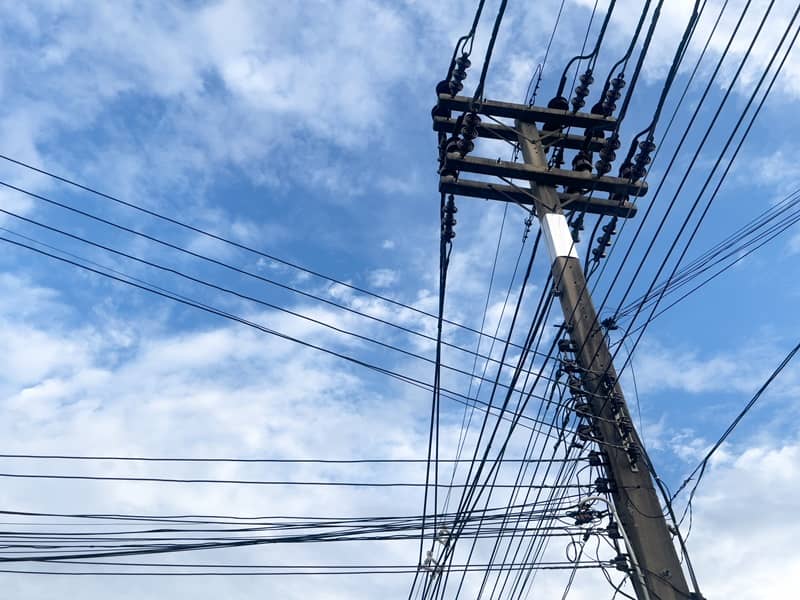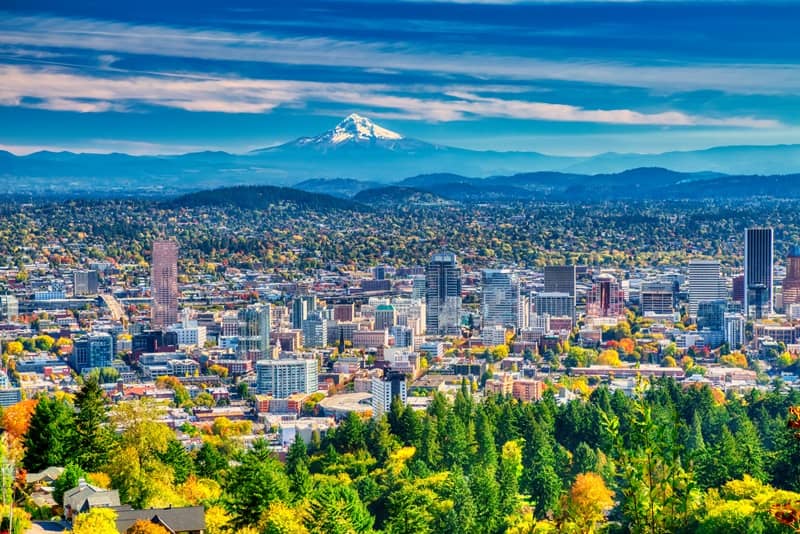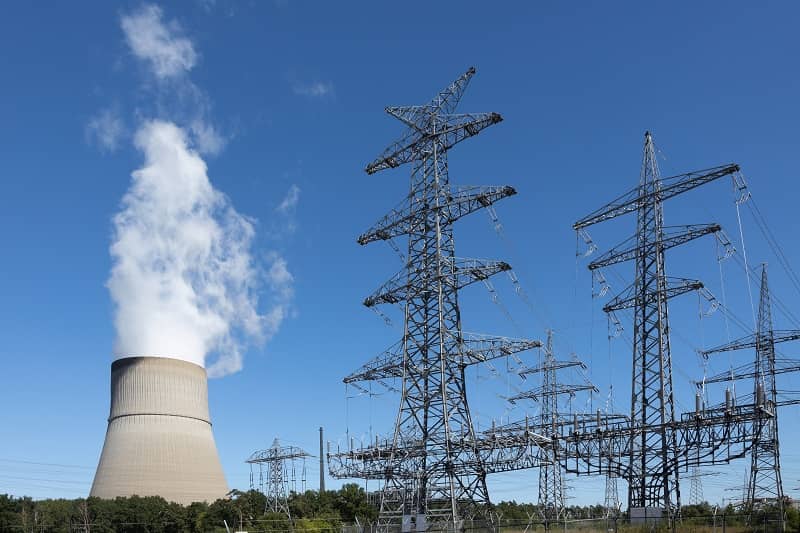By Eric Fruits, Ph.D.
Executive Summary
Over the next decade, Oregon and much of the country face increasing chances of widespread electricity blackouts. For example, the Western Electricity Coordinating Council estimates the Pacific Northwest could face a shortfall of hours totaling as much as 20 days without imports from other regions.
The increased risk comes from changing supply and demand dynamics: Demand is rising and expected to rise, while stable supplies are diminishing. Over the next 10 years, electricity demand in the Pacific Northwest is expected to increase by nearly 10% while available resources are expected to decrease by more than 7%.
- Since 2010, western states have seen the largest percentage increases in population in the U.S., leading to increased demand for electricity.
- Variability in demand is increasing. For example, in Portland, the number of days that reach 90 or higher has increased by an average of eight a year since 1940.
- Federal, state, and local policymakers have been pushing an “electrify everything” agenda to replace internal combustion vehicles, gas appliances, and gas furnaces with electric alternatives and to replace fossil-fuel power with wind, solar, and hydroelectric alternatives.
- In recent years, several Northwest coal plants have been shut down, including Oregon’s only coal plant and a boiler in Washington. Over the next decade, coal plants accounting for about 8,100 megawatts of electricity are planned to be retired.
- Oregon and at least 28 other states plus the District of Columbia have enacted “Renewable Portfolio Standards” requiring utilities to use large amounts of “green power.”
- In 2021, the Oregon legislature passed HB 2021, which mandates power suppliers achieve zero emissions by 2040. To meet that goal, regulated entities would be required to submit plans to reduce emissions by 80% from a baseline amount by 2030 and 90% by 2035. The law also bans the expansion or new construction of power plants that burn natural gas or other fossil fuels.
To make up for the lost megawatts, PacifiCorp plans to build or buy more wind and solar, along with battery storage. Portland General Electric plans to purchase five-year hydropower contracts from the Bonneville Power Administration and to invest in wind as well as battery and pumped hydro storage. But, these plans are not sufficient to satisfy projected demand. Wind power has enormous day-to-day and hour-by-hour variation. Solar power has both seasonal variation and intra-day variation, with no solar power being generated at night. If Oregon policymakers succeed in stopping the use of fossil fuels to generate electricity, there will not be enough renewable resources to fill the gap. For example, since 2012, the probability of unserved load for BPA increased from 5% to 22% in 2022. Since 2017, the probability has roughly doubled (Figure 3).
Policymakers must face the fact that natural gas is, and will continue to be, a major source of power for reliable and cost-effective electricity generation. But it takes years to build out new generating capacity, so the time to act is now. It will be too late to act when the power fails and produces political backlash. It will be too late to act when electricity bills become unsustainably large. To ensure reliable electricity for the state’s growing demands, we offer the following recommendations regarding Oregon’s renewable portfolio standards and HB 2021’s clean energy targets:
- If RPS costs continue their rapid increase over the next five years, then the legislature should take extraordinary measures to protect grid reliability and ratepayers. These measures should include re-legalizing new or expanded natural gas generating facilities.
- Similarly, if sufficient reliable generating resources are not expected to be brought on-line within the next five years (i.e., Tier 1 and Tier 2 resources), then the legislature should re-legalize new or expanded natural gas generating facilities.
- If the legislature will not revisit the RPS or HB 2021, then electric utilities should apply for—and the Oregon Public Utilities Commission should grant—a “reliability pause” from compliance with HB 2021. During the pause, the companies should build or expand natural gas-generating facilities to ensure the reliable delivery of electricity.
- Repeal the state moratorium on the construction of new nuclear plants. Oregon’s 1980 moratorium prevents the financing and construction of a new nuclear facility in the state until there is a permanent place to store the spent fuel and voters approve the siting of a new plant. Today, small-modular reactor technology is rapidly advancing and Oregon is home to one of the leading developers, NuScale. The legislature should place a referendum on the ballot to lift the moratorium or allow an exemption for small modular reactors.
Eric Fruits, Ph.D. is an adjunct scholar at Cascade Policy Institute. He is a senior scholar at the International Center for Law & Economics and an adjunct professor of economics at Portland State University. Eric has been a long-time academic advisor and contributing analyst for Cascade. From 2019 to 2023, he served as Vice President of Research, leading Cascade’s policy team and serving as an expert analyst of Oregon state and local public policy issues.













Larry A Sparks
HB 2021 is a very poor green energy law and must be over turned. The people must elect common sense legislators that understand electrical power needs of the Northwest which includes the use of coal. China and India are opening hundred of coal
mines a year. How ignorant and naïve are Oregon legislators and Governor?
Terry Cook
Follow the money! Most of the “crisis” talk about fossil fuels destroying the climate is simply camouflaging the real but unspoken issue of who’s making the money in alternatives? We live in an oligarchic economic world today–companies using government to make money by pushing their products and services.
Would things change if people understood that money was at the heart of all the debate over climate change, not science? Instead of debating whether or not fossil fuels are the problem, why not change the discussion to address how government is being influenced by corporations? I am not anti-business–profits are fine. But when government has its thumb on the scale to benefit an industrial oligarch willing to use climate lies to advance its own profit interests, I’m not fine.